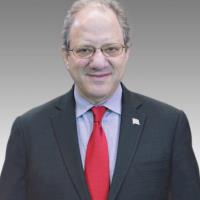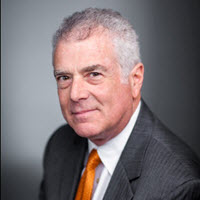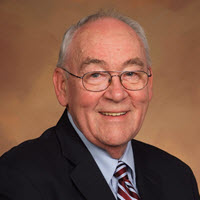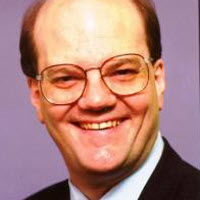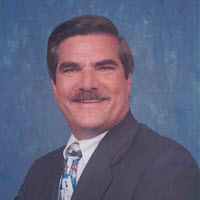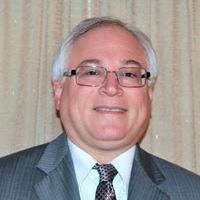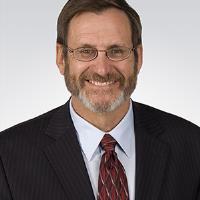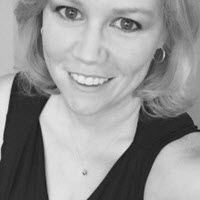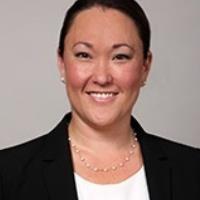Keynote: Financial Expert Testimony—The Challenge for Judges and Attorneys
Tuesday, November 148:00 a.m.–8:50 a.m.
1 hour CPE
A raucous review revealing retrospective reminiscence of how financial experts and lawyers fail to "connect" with the judge or jury in properly communicating financial analysis, conclusions, and opinions.
Learning Objectives:
After completing the session, attendees will be able to:• Identify ways to help judges and juries understand the financial world including terminology, concepts, and analysis.
Fields of Study:
1 AccountingPrerequisites:
Overview: Learning activity level that provides a general review of a subject area from a broad perspectiveAdvanced Preparation:
NoneThe Highest and Best Use of CPAs in Collaborative Method Divorce Cases
Tuesday, November 149:15 a.m.–11:50 a.m.
3 hours CPE
This session will address the following questions and topics:
• What is collaborative divorce?
• What types of clients use collaborative?
• What makes collaborative unique?
• How financial experts fit well into collaborative.
• Typical issues in collaborative divorce.
• What is collaborative divorce?
• What types of clients use collaborative?
• What makes collaborative unique?
• How financial experts fit well into collaborative.
• Typical issues in collaborative divorce.
Learning Objectives:
After completing this session, attendees will be able to:• Describe the basics of collaborative law in divorce
• Identify what makes collaborative effective and unique
• Describe how to seek and obtain collaborative cases
• List the best practices in collaborative
• Develop a new niche practice area
• Identify ways to get paid
Fields of Study:
1 Accounting, 1 Economics, 1 TaxesPrerequisites:
Overview: Learning activity level that provides a general review of a subject area from a broad perspectiveAdvanced Preparation:
None
Attendees will learn effective approaches to writing an expert damages report for use in a litigation matter. The session will include a review of the report writing requirements set forth in the Federal Rules of Civil Procedure and reporting requirements for other jurisdictions. This session will also focus on drafting reports with an emphasis on content, language, supporting evidence, exhibits, and professional standards compliance.
Learning Objectives:
After completing this workshop, attendees will be able to:• Cite the components of an effective expert report
• Determine the strengths, weaknesses, and risks of alternative report styles
• Detect the risks of a substandard report
• Define the manner in which foundational evidence is incorporated into an expert report
• Identify the reasons that expert reports are often inadmissible as evidence in court
• Recognize a well-prepared report
Fields of Study:
2 Communications and Marketing, 1 Personal DevelopmentPrerequisites:
Overview: Learning activity level that provides a general review of a subject area from a broad perspectiveAdvanced Preparation:
NoneThe Reasonable Certainty Requirement in Lost Profits Litigation—Best Practices for Proving Your Damages Calculation
Tuesday, November 1412:50 p.m.–2:30 p.m.
2 hours CPE
The big issue in business litigation—the one the huge verdicts turn on—is whether the plaintiff's lost profits have been proven with reasonable certainty. Every U.S. jurisdiction has adopted the rule that lost profits must be proven with reasonable certainty. What are the factors courts actually take into account when they decide whether the plaintiff has proven its lost profits with reasonable certainty? These factors will be discussed in connection with an actual case study.
Learning Objectives:
After completing the session, attendees will be able to:• Identify the supporting evidence required for proving damages from lost profits
• Explain the necessary factors that courts consider: is the estimate accurate, is the court certain the injured party suffered some damage, the degree of moral fault on the part of the defendant, the extent to which the plaintiff produced the best possible evidence of lost profits, the amount at stake, and whether there is an alternative method of compensating the injured party
Fields of Study:
2 AuditingPrerequisites:
Advanced: Learning activity level most useful for individuals with mastery of the particular topic. This level focuses on the development of in-depth knowledge, a variety of skills, or a broader range of applicationsAdvanced Preparation:
Good knowledge of topic and experience in the field.Rebutting Valuation Experts in the Courtroom
Tuesday, November 1412:50 p.m.–2:30 p.m.
2 hours CPE
This session will identify the opposing expert (i.e., credentialed, academic, broker) and standards to be employed by them, if any. Develop a context to review the opposing expert's report in preparation for production of your rebuttal analysis and report and discover tools to assist you. Consider differing rebuttal approaches based on your engagement by the plaintiff versus your engagement by the defendant. Develop appropriate evidence and argument for your rebuttal. Discuss planning your rebuttal and surrebuttal testimony with counsel.
Learning Objectives:
After completing the session, attendees will be able to:• Create a work plan to effectively review, critique, and rebut an opposing expert's business valuation report
• Describe how to research the standards, if any, of the opposing expert
• List key terms to include in a successful rebuttal report
• Assist counsel in developing effective rebuttal and surrebuttal testimony strategy
• Determine how non-credentialed experts may survive a Daubert Challenge or Motion in Limine
Fields of Study:
2 Personal DevelopmentPrerequisites:
Overview: Learning activity level that provides a general review of a subject area from a broad perspectiveAdvanced Preparation:
NoneKey Elements in Calculating Losses in Personal Injury and Wrongful Death Litigation
Tuesday, November 142:50 p.m.–4:30 p.m.
2 hours CPE
This session focuses on several of the key elements and processes of calculating damages in cases involving personal injury and wrongful death (e.g., lost earnings or lost economic support, lost benefits, lost future medical expenses, lost household services). The session will be based on the most recent literature and sources of information on multiple topics in these areas. Different methodologies and data sources will be reviewed.
Learning Objectives:
Information forthcoming.Fields of Study:
2 EconomicsPrerequisites:
Intermediate: Learning activity level that builds on a basic program most appropriate for individuals with detailed knowledge in an areaAdvanced Preparation:
Information forthcoming.
The expert witness may be the only effective way for the attorney to present technical evidence to the court. But, effectively using a technical expert witness can sometimes be a challenging experience for both the attorney and the expert. This session will discuss the effective use of the expert witness from the perspective of both, the expert and the attorney. Many aspects of expert witness testimony will be presented with special emphasis on tips and traps of being an expert witness. Credibility is everything in expert testimony and knowing how to avoid being discredited is critical to being a powerful expert witness. Teamwork with the attorney is very important and this session will show you how to create an effective presentation.
Learning Objectives:
After completing the session, attendees will be able to:• Identify what it takes to present effective expert witness testimony
• Describe what a Daubert challenge is and how to avoid being disqualified
• Explain how to present the conclusion before testifying to the underlying facts or data
• State the importance of independence and lack of bias
• Describe how to present direct testimony and how to survive cross examination
• Identify why the opinion must be based on generally-accepted and reliable methods
• Indicate why the testimony must be supported by sufficient facts or data
• Define why the court will only permit expert testimony if the court determines it will be helpful
Fields of Study:
2 Business LawPrerequisites:
Basic: Learning activity level most beneficial to individuals new to a skill or an attributeAdvanced Preparation:
Only a keen interest in how to become a powerful expert witness is required. No additional prerequisites or advanced preparation is needed.How to "Successfully" Build and Market Your Matrimonial and Forensic Litigation Practices
Tuesday, November 144:50 p.m.–5:40 p.m.
2 hours CPE
This session is designed to provide attendees with “cutting edge technology tools and ideas” to help them successfully strategize, market, and build profitable matrimonial and forensic litigation practices. Learn the secrets that marketing consultants recommend to CPA firms that will help attendees to promote their firm and grow their practice.
Learning Objectives:
After completing the session, attendees will be able to:• Determine how to market their niche skill set to higher levels
• Identify the available internet technologies, social media, etc., in order to utilize them further to market their services
• Describe ways to network with other high profile individuals to create the aroma of a “branded image”
• List ways to leverage their current skill set to further their career
Fields of Study:
1 Communications and MarketingPrerequisites:
Overview: Learning activity level that provides a general review of a subject area from a broad perspectiveAdvanced Preparation:
NoneKeynote: Tell The Winning Story—Make The Human Connection
Wednesday, November 158:00 a.m.–8:50 a.m.
1 hour CPE
Information forthcoming
Learning Objectives:
Information forthcomingFields of Study:
1 Personal DevelopmentPrerequisites:
Overview: Learning activity level that provides a general review of a subject area from a broad perspectiveAdvanced Preparation:
NoneChallenges in Analyzing Patent Infringement Reasonable Royalty Damages—Strategies and Approaches
Wednesday, November 159:15 a.m.–11:50 a.m.
3 hours CPE
In recent years, the methodology and supporting evidence for proving reasonable royalty damages have been scrutinized by the Courts. This session will provide an overview of reasonable royalty damages and related challenges in determining royalties. It will also focus on practical ways to assist Counsel with discovery strategies and analytical approaches to employ, specifically focusing on: the hypothetical negotiation and the related Georgia-Pacific factors; the entire market value rule; apportionment to the smallest saleable patent practicing unit; identifying and analyzing comparable licenses; use of the analytical approach; and implications of recent Federal Circuit on the analysis of reasonable royalty damages.
Learning Objectives:
After completing the session, attendees will be able to:• Identify challenges to be addressed when calculating reasonable royalty damages
• Analyze potential pitfalls to avoid when calculating reasonable royalty damages
• Formulate and recommend strategic discovery strategies to Counsel
• Calculate reasonable royalty damages under a hypothetical negotiation
• Employ the analytical approach when calculating reasonable royalty damages
• Determine if the entire market value rule is applicable
• Define the smallest saleable patent practicing unit and estimate an apportioned royalty base
• Evaluate licenses for comparability
• Cite relevant Federal Circuit court decisions
• Critique opposing expert reports effectively
Fields of Study:
3 Business LawPrerequisites:
Intermediate: Learning activity level that builds on a basic program most appropriate for individuals with detailed knowledge in an areaAdvanced Preparation:
None10 Ways Attorneys Kill Their Own Experts and 10 Ways Experts Can Protect Themselves
Wednesday, November 159:15 a.m.–11:50 a.m.
3 hours CPE
The role of the expert is to use his or her skills and qualifications to enable the judge and jury to better understand the evidence. In preparing the case, there are many steps and variables that enter into the experts work: planning the project, gathering the foundational evidence, applying approaches and methodologies, the application of the expert's professional skills, formulation of opinions, drafting of reports, interfacing with counsel, preparing for deposition and trial, and delivery of expert testimony. Experts typically assume that retaining counsel will be both supportive and helpful as the expert conducts the engagement. Many experts, however, are surprised to learn that on occasion, retaining counsel may become a significant obstacle to the expert's success in the matter. In this session we will explore some of the all to common practices of attorneys that undermine their own expert's work and identify strategies and best practices that experts may employ to protect themselves and remain credible and persuasive in the courtroom.
Learning Objectives:
After completing the session, attendees will be able to:• Identify practices of attorneys that interfere with an expert's best work
• Differentiate between typical dynamics of a lawsuit and dynamics that accompany a hidden agenda
• Define ways to maintain objectivity when counsel and the litigant encourage advocacy
• Identify assumptions that are contradicted by the evidence
• List strategic steps to enable an expert to maintain professional integrity when counsel's practices or agenda are otherwise
• Define and plan strategic practices that enable the expert to enlighten counsel as to the expert's standard of care and requirements
Fields of Study:
3 Business LawPrerequisites:
Intermediate: Learning activity level that builds on a basic program most appropriate for individuals with detailed knowledge in an areaAdvanced Preparation:
NoneThe Deadly Sins of Presenting Numbers—Avoiding Fatal Communication Errors
Wednesday, November 1512:50 p.m.–2:30 p.m.
2 hours CPE
In every communication skill, small, seemingly innocuous errors—misspellings, mispronunciations, confusing “its” and “it’s”, little nonverbal signals, etc.—can have a devastating impact on your communication effectiveness. And make no mistake: presenting numerical information is a COMMUNICATION skill. This entertaining session offers a tour through those little numbers' presentation errors that can be so destructive to the effectiveness and personal credibility in the eyes of the audience.
Attendees will also receive suitable-for-framing copies of (a) “The Art of Quantation,” the practices that will ensure effective numbers presentation (the “thou shalts”), and (b) “The Deadly Sins of Quantation” (the “thou shalt nots”).
Attendees will also receive suitable-for-framing copies of (a) “The Art of Quantation,” the practices that will ensure effective numbers presentation (the “thou shalts”), and (b) “The Deadly Sins of Quantation” (the “thou shalt nots”).
Learning Objectives:
After completing the session, attendees will be able to:• Describe how to avoid the numbers’ presentation errors most destructive to any professional’s effectiveness and personal credibility
• Demonstrate the respect and compassion for the audience that is so critical to effective communication of numbers
Fields of Study:
2 Communications and MarketingPrerequisites:
Basic: Learning activity level most beneficial to individuals new to a skill or an attributeAdvanced Preparation:
Attendees should bring a strong appreciation for the importance of communicating effectively, and a willingness to take a fresh perspective on the skill of presenting quantitative information.Dealing with Electronic Information in Financial Litigation
Wednesday, November 1512:50 p.m.–2:30 p.m.
2 hours CPE
Information forthcoming
Learning Objectives:
Information forthcomingFields of Study:
2 Computer Software & ApplicationsPrerequisites:
Overview: Learning activity level that provides a general review of a subject area from a broad perspectiveAdvanced Preparation:
NoneRole of Financial Litigation Consultants in Class Certification
Wednesday, November 152:50 p.m.–4:30 p.m.
2 hours CPE
This session will explain what plaintiffs must demonstrate and what defendants must challenge at the class certification stage—and the role of the financial litigation services expert witness in those demonstrations—in order to prove or disprove membership in a proposed class. The session will discuss the role of the financial litigation consultant regarding the "ascertainable" and "administratively feasible" requirements. In summary, these concepts require an objective class definition and an “administratively feasible” way to determine who satisfies that definition.
Learning Objectives:
After completing the session, attendees will be able to:• List the requirements for class certification
• Identify recent court decisions impacting expert witnesses in the certification stage of class action litigation
• Determine the unique steps in providing commercial litigation services for class actions
• Describe how to fulfill the trial court’s obligation to undertake a “rigorous analysis” at the class certification stage
• Cite unique features in the expert report relating to class actions at the certification stage
Fields of Study:
2 Business LawPrerequisites:
Intermediate: Learning activity level that builds on a basic program most appropriate for individuals with detailed knowledge in an areaAdvanced Preparation:
NoneTop 10 Ways to Combat Against Advocating Opposing Experts
Wednesday, November 152:50 p.m.–4:30 p.m.
2 hours CPE
Experts are an integral part of the litigation process. In complex litigation, the significance of the expert witness, in both pre-trial and trial, can have a significant impact on the outcome of the case.
Experts are professionally and ethically bound to be objective and independent. Unfortunately, there are more and more practitioners advocating for their clients. This presents additional challenges to the already difficult task of communicating complex topics in the trier of fact. We all know cases that have been won, not on the technical merits of the analysis, but on the persuasiveness of the expert.
This session will provide attendees 10 ways to defend against an advocating expert without appearing to be an advocate themselves.
Experts are professionally and ethically bound to be objective and independent. Unfortunately, there are more and more practitioners advocating for their clients. This presents additional challenges to the already difficult task of communicating complex topics in the trier of fact. We all know cases that have been won, not on the technical merits of the analysis, but on the persuasiveness of the expert.
This session will provide attendees 10 ways to defend against an advocating expert without appearing to be an advocate themselves.
Learning Objectives:
After completing the session, attendees will be able to:• Differentiate between a skilled opposing expert and an advocate
• Identify opposing expert's strategies used to undermine their testimony
• Recognize actions that make them appear to be an advocate
• Identify key steps they can take to demonstrate their independence
• Describe key strategies to manage council and clients' expectations to remain objective and independent
Fields of Study:
2 Personal DevelopmentPrerequisites:
Overview: Learning activity level that provides a general review of a subject area from a broad perspectiveAdvanced Preparation:
NoneConversations with the Masters—Solid Answers to Your Tough Questions
Wednesday, November 154:50 p.m.–5:40 p.m.
1 hour CPE
You ask the tough questions. This will be a panel of our conference faculty who will provide solid answers. In this lively and interactive discussion, the profession’s leading experts and emerging leaders will share their insights and practical guidance on a range of topics. Receive cutting-edge information on an array of topics and walk away with answers to your burning questions.
Learning Objectives:
After completing the session, attendees will be able to:• Identify answers to their burning questions

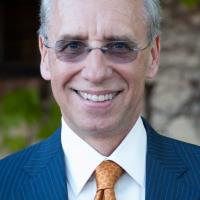
-1519405676.jpg)
